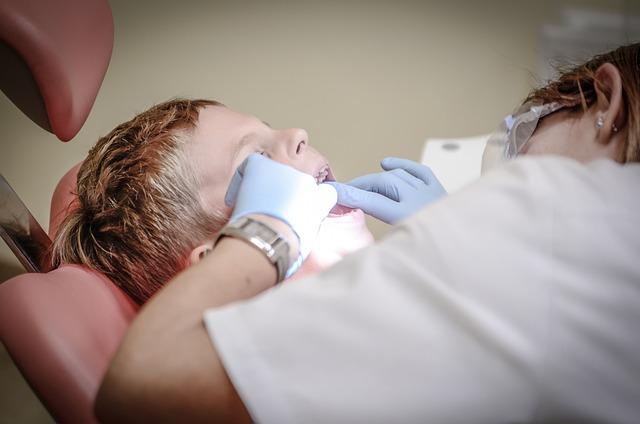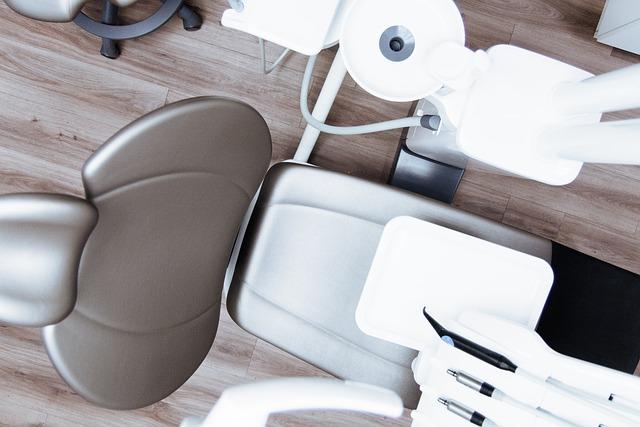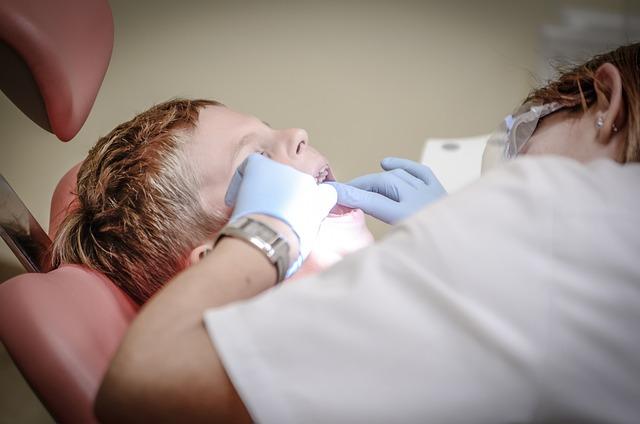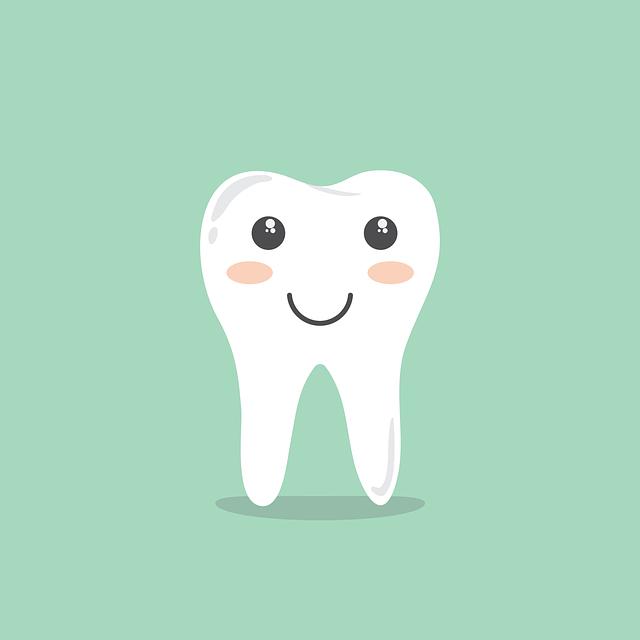Does Salt Clean Teeth? Dental Hygiene Demystified
Are you tired of sifting through endless dental hygiene theories in search of the secret to a brighter smile? Look no further. Today, we delve into the age-old question: does salt clean teeth? With confidence, knowledge, and a neutral perspective, we aim to demystify the role of salt in dental hygiene. So sit back, relax, and prepare to unravel the truth behind this intriguing debate.
1. Debunking the Myth: Can Salt Really Clean Teeth?
Contrary to popular belief, salt alone cannot effectively clean teeth. While it’s true that salt has some antibacterial properties and can help reduce inflammation in the gums, it is not a substitute for proper dental hygiene practices. Here’s why:
1. Abrasive Nature: Salt is abrasive and can help scrub away some plaque and stains on the teeth. However, excessive use or aggressive brushing with salt can damage the enamel and lead to tooth sensitivity.
2. Lack of Fluoride: Fluoride is essential for preventing tooth decay and strengthening enamel. Regular toothpaste contains fluoride, while salt does not. Therefore, using salt alone as a tooth-cleaning agent does not provide the necessary protection against cavities.
3. Incomplete Oral Care: Salt does not contain ingredients, such as antimicrobial agents or breath fresheners, that are commonly found in toothpaste. Brushing with salt alone may leave your mouth feeling clean, but it does not address other important aspects of oral care, like freshening breath or preventing gum disease.
While salt can be used as a supplementary ingredient in homemade toothpaste or mouthwash, it should not be solely relied upon as a teeth-cleaning method. For optimal oral health, it is crucial to maintain a regular dental hygiene routine, including brushing twice a day with fluoride toothpaste, flossing, and visiting your dentist regularly.

2. The Science Behind Dental Hygiene: Understanding Salt’s Role
Understanding the science behind dental hygiene is crucial for maintaining a healthy smile. One often overlooked component is salt, which plays a significant role in oral health. Here’s what you need to know:
Saltwater Rinse: Saltwater rinses have been used for centuries to treat various dental issues. The solution helps to cleanse the mouth, reduce inflammation, and promote healing. Saltwater rinses are particularly effective in soothing gum irritations, mouth ulcers, and sore throats.
Antibacterial Properties: Salt possesses antibacterial properties that can help fight against harmful bacteria in the mouth. It can prevent the growth of bacteria, reducing the risk of gum disease and tooth decay. Regular use of saltwater rinses can also help control bad breath by eliminating odor-causing bacteria.
Mineralizing Effects: Salt is rich in minerals like calcium, magnesium, and fluoride, which are essential for maintaining strong teeth and bones. These minerals help remineralize the tooth enamel, strengthening it against acid attacks and preventing cavities. Incorporating salt into your oral care routine can contribute to overall dental health.

3. Exploring Salt’s Cleansing Properties for Dental Health
Salt has long been recognized for its various cleansing properties, and it turns out that it can be incredibly beneficial for dental health as well. Here are some ways in which salt can work wonders for your oral hygiene:
- Antibacterial action: Salt has natural antibacterial properties that can help kill harmful bacteria in the mouth. Gargling with a saltwater solution can reduce the risk of infections and promote overall oral health.
- Reducing inflammation: Saltwater rinses can help reduce inflammation in the gums and alleviate discomfort caused by gum disease or other oral infections. The saltwater acts as a natural disinfectant, soothing the affected areas.
- Removing stains: Salt can also be used as a gentle abrasive to remove surface stains from teeth. Mixing a small amount of salt with toothpaste can provide a mild exfoliating effect, leaving your teeth looking cleaner and brighter.
It’s important to note that while salt can be beneficial for dental health, it should be used in moderation. Excessive salt intake can have adverse effects on overall health, so it’s always best to consult with a dentist or healthcare professional before incorporating salt into your dental care routine.

4. The Truth About Salt and its Effectiveness on Teeth Cleaning
Salt has been a popular natural remedy for teeth cleaning for centuries, and its effectiveness is backed by science. Here’s the truth about salt and its benefits when it comes to dental hygiene:
1. Antibacterial properties: Salt has natural antibacterial properties that help combat harmful bacteria in the mouth. It can reduce the risk of tooth decay and gum disease by inhibiting the growth of bacteria that contribute to these oral health issues.
2. Gentle abrasive action: When used in moderation, salt can act as a gentle abrasive that helps remove plaque and stains from the teeth. Its texture and structure make it capable of scrubbing away surface stains without causing damage to the enamel.
3. Promotes saliva production: Salt has the ability to stimulate saliva production, which is crucial for maintaining oral health. Saliva helps neutralize acids and wash away food particles, preventing tooth decay and bad breath.
In conclusion, salt can be an effective and natural way to clean and maintain oral hygiene. However, it’s important to use salt in moderation and consult with a dentist for personalized advice based on your specific dental needs.

5. Unveiling the Secrets: How Salt Can Enhance Dental Hygiene
Salt is not just a seasoning for your food, it also holds some amazing benefits for your dental hygiene. Here are some secrets about salt that can enhance your oral health:
1. Natural antimicrobial properties: Salt acts as a natural antimicrobial agent, which means it can help kill harmful bacteria in your mouth. By rinsing your mouth with a saltwater solution, you can reduce the risk of infections and promote healing of oral wounds.
2. Reduces inflammation: Saltwater rinses are also effective in reducing inflammation in the gums and soothing any irritations. The saltwater solution helps to draw out excess fluid from the gum tissues, providing relief from discomfort and swelling.
3. Promotes remineralization: Salt is rich in minerals that are essential for maintaining healthy teeth. It can aid in the remineralization process, which helps to strengthen tooth enamel and prevent tooth decay. Regular use of a saltwater rinse can contribute to stronger and more resilient teeth.
By incorporating salt into your dental hygiene routine, you can harness its powerful properties to improve your oral health. Remember to consult with your dentist or dental professional for personalized recommendations.
6. Mastering Dental Hygiene: Incorporating Salt into Your Oral Care Routine
When it comes to maintaining excellent dental hygiene, there are numerous techniques and products available to help you achieve a healthy smile. One such method that has gained popularity is incorporating salt into your oral care routine. Salt, a natural mineral, offers several benefits for your teeth and gums.
Here are a few reasons why you should consider incorporating salt into your oral care routine:
- Antibacterial properties: Salt has natural antibacterial properties that can help reduce the growth of harmful bacteria in your mouth. This can aid in preventing cavities, gum disease, and bad breath.
- Reduced inflammation: Saltwater rinses can help reduce inflammation and soothe any discomfort caused by gum disease or oral injuries.
- Improved pH balance: Salt can help restore the pH balance in your mouth, creating an environment that is less conducive to the growth of harmful bacteria.
- Natural teeth whitening: Salt has mild abrasive properties, which can help remove surface stains and make your teeth appear whiter and brighter.
When incorporating salt into your oral care routine, it is important to use the right technique. Dissolve half a teaspoon of salt in warm water and use it as a mouthwash, swishing it around your mouth for about 30 seconds before spitting it out. Remember not to swallow the saltwater. Additionally, it is crucial to consult with your dentist before making any significant changes to your oral care routine.
7. Salt vs. Traditional Toothpaste: An In-depth Comparison
When it comes to oral hygiene, there are various options available for maintaining healthy teeth and gums. Two popular choices are salt and traditional toothpaste. In this article, we will delve into a detailed comparison of these two alternatives, highlighting their advantages and disadvantages.
Salt:
- Cost-effective: Salt is an affordable option, making it accessible to a wide range of individuals.
- Natural properties: Salt has antibacterial and antiseptic properties that can help in fighting oral bacteria and reducing inflammation.
- Gentle on gums: Salt is less abrasive compared to traditional toothpaste, making it suitable for individuals with sensitive gums.
- DIY potential: It is possible to create homemade salt toothpaste by mixing salt with water or other natural ingredients.
Traditional Toothpaste:
- Fluoride content: Most traditional toothpaste contains fluoride, which helps in preventing tooth decay and strengthening enamel.
- Wide range of options: Traditional toothpaste comes in various flavors, textures, and features like whitening or sensitivity relief.
- Effective cleaning: Traditional toothpaste contains ingredients like abrasives and detergents that effectively remove plaque and stains.
- Easier to use: Traditional toothpaste comes in convenient packaging and is ready to use without any preparation.
Ultimately, the choice between salt and traditional toothpaste depends on personal preference, dental needs, and budget. While salt offers natural properties and affordability, traditional toothpaste provides a wider range of options and additional benefits like fluoride. It is advisable to consult with a dentist to determine the most suitable option for your oral health.
8. The Pros and Cons of Using Salt as a Teeth Cleaning Agent
Using salt as a teeth cleaning agent can have both pros and cons. Let’s take a closer look:
- Pros:
- Cost-effective: Salt is an affordable and easily accessible option for teeth cleaning.
- Natural antiseptic: Salt has antimicrobial properties that can help kill bacteria and reduce the risk of gum disease.
- Mild abrasive: The granular texture of salt can act as a gentle scrub, removing plaque and stains from the teeth.
- Freshens breath: Salt can neutralize odors and leave your mouth feeling fresher.
- Can soothe gum inflammation: Saltwater rinses may provide relief for sore gums and can aid in healing.
- Cons:
- Can be abrasive: Overusing salt as a teeth cleaning agent may damage the tooth enamel and lead to tooth sensitivity.
- Insufficient fluoride: Salt does not contain fluoride, which is essential for preventing tooth decay and strengthening teeth.
- Not a complete solution: While salt can offer some benefits, it should not replace regular brushing, flossing, and dentist visits.
- Taste and discomfort: The taste of salt may not be pleasant for everyone, and some individuals may experience discomfort when using salt as a teeth cleaning agent.
It’s important to weigh these pros and cons and consult your dentist before incorporating salt into your oral hygiene routine. They can provide personalized advice based on your specific dental needs.
9. Expert Insights: Dentists’ Perspective on Salt and Dental Hygiene
When it comes to salt and dental hygiene, dentists offer valuable insights that shed light on the topic. Here are some key takeaways from their perspective:
- Saltwater rinse: Dentists often recommend saltwater rinses as a natural remedy for various oral health issues. The saltwater solution can help reduce inflammation, soothe gum irritations, and promote healing after dental procedures. It is a cost-effective and easy-to-make solution that can be used alongside regular brushing and flossing.
- Salt and tooth sensitivity: Some individuals experience tooth sensitivity, which can be exacerbated by the consumption of salty foods. Dentists advise patients with sensitive teeth to moderate their salt intake as high sodium levels may contribute to tooth discomfort. Maintaining a balanced diet and regular oral care routine can help in managing tooth sensitivity.
- Saline solution for oral health: Saltwater solutions, also known as saline solutions, have been used for centuries to maintain oral health. These solutions can act as a natural antiseptic, helping to reduce bacteria in the mouth and prevent infections. Dentists may recommend saline rinses to promote oral hygiene, particularly for individuals with certain medical conditions or after oral surgeries.
By considering the insights of dental professionals, we can better understand the role of salt in dental hygiene and make informed decisions for our oral health.
10. The Final Verdict: Is Salt an Effective Dental Cleaning Method?
After carefully analyzing the effectiveness of salt as a dental cleaning method, we have come to a final verdict. While salt can provide some benefits in maintaining oral hygiene, it should not be relied upon as the sole method for dental cleaning. Here’s what you need to know:
Pros of using salt for dental cleaning:
- Salt has natural antibacterial properties, which can help in reducing the growth of bacteria in the mouth.
- Rinsing with salt water can provide temporary relief for minor gum irritations and can help alleviate bad breath.
- Using salt as an occasional supplement to regular brushing and flossing can be a cost-effective and easily accessible option.
Cons of relying solely on salt for dental cleaning:
- Salt cannot remove plaque or tartar buildup, which are major contributors to tooth decay and gum disease.
- It does not provide the same level of deep cleaning that can be achieved with professional dental tools.
- Using salt excessively or incorrectly can be harmful to tooth enamel and may lead to increased tooth sensitivity.
In conclusion, while salt can be a helpful addition to your oral hygiene routine, it should not replace regular brushing, flossing, and professional dental cleanings. For optimal dental health, it is always recommended to consult with your dentist and follow their advice on the best cleaning methods and products.
Frequently Asked Questions
Q: Does salt clean teeth better than toothpaste?
A: While salt can help to some extent, it is not as effective as toothpaste in cleaning teeth. Toothpaste contains important ingredients like fluoride and abrasive agents that effectively remove plaque and prevent tooth decay. Salt, on the other hand, lacks these essential components, making it less effective in maintaining dental hygiene.
Q: Can salt be used as a substitute for toothpaste?
A: Salt alone is not an ideal substitute for toothpaste. While it may have some antibacterial properties and can help reduce oral bacteria, it does not contain the necessary ingredients to effectively clean teeth and protect against cavities. It is always recommended to use toothpaste that is specifically formulated for dental hygiene.
Q: Does salt have any benefits for oral health?
A: Salt can provide some benefits for oral health when used in moderation and in conjunction with proper oral hygiene practices. It can help to temporarily alleviate minor mouth sores or gum inflammation due to its natural antibacterial properties. However, it should not replace regular brushing, flossing, and dental visits, which are key to maintaining optimal oral health.
Q: Is gargling with saltwater effective in preventing dental issues?
A: Gargling with saltwater can be a useful adjunct to regular oral hygiene practices. It can help reduce inflammation, soothe a sore throat, and temporarily alleviate bad breath. However, it is not a standalone solution for preventing dental issues. It is important to remember that regular brushing, flossing, and dental check-ups remain the foundation of effective dental care.
Q: Can salt damage tooth enamel?
A: Salt, when used in moderation, is unlikely to damage tooth enamel. However, excessive consumption or rubbing salt directly on teeth can be abrasive and potentially harmful to the enamel. It is best to consult with a dentist or dental professional for appropriate use of salt in oral care routines.
Q: Are there any risks associated with using salt for oral hygiene?
A: When used in moderation, salt poses minimal risks for oral hygiene. However, individuals with high blood pressure or certain medical conditions should be cautious with salt intake. Additionally, using excessive amounts of salt or using it too frequently for oral care purposes may lead to enamel erosion or gum irritation. It is always best to follow professional dental advice and maintain a balanced approach to oral hygiene.
In Summary
In conclusion, the age-old question of whether salt can clean teeth has been demystified through our exploration of dental hygiene. While salt can indeed play a role in maintaining oral health, it is important to note that it is not a standalone solution. Brushing with toothpaste, flossing, and regular dental check-ups remain the cornerstones of a solid dental care routine.
Key Takeaways:
1. Salt can act as a natural disinfectant and help alleviate gum inflammation.
2. Saltwater rinses can be a temporary solution for soothing mouth sores or minor discomfort.
3. However, it is crucial to consult with a dental professional before making any significant changes to your dental care routine.
4. Toothpaste, flossing, and regular dental check-ups should not be replaced by salt-based remedies.
5. Maintaining good oral hygiene practices is essential for long-term dental health.
Remember, while salt can provide some benefits, it is always best to follow the advice of dental professionals to ensure optimal oral care.






